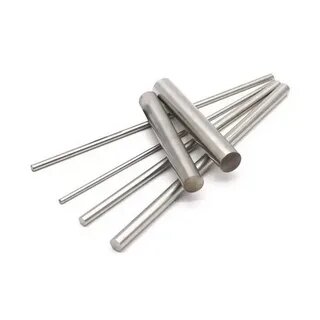Surgical grade stainless steel has become a cornerstone of the medical industry, providing a high-performance material with numerous advantages for medical instruments and implants. Chicago, being a hub for medical and manufacturing industries, plays a crucial role in the production and utilization of surgical-grade stainless steel. This article explores the characteristics of surgical-grade stainless steel, its importance in the medical field, and why Chicago is a key player in its production and supply.
What is Surgical Grade Stainless Steel?
Surgical-grade stainless steel refers to a specific type of stainless steel that meets the stringent requirements for use in medical environments. This material is highly resistant to corrosion, wear, and pitting, making it ideal for use in surgical instruments, implants, and other medical devices that need to withstand sterilization processes and long-term exposure to body fluids.
The most common grades used in surgical applications include:
- Grade 304 (18/8 Stainless Steel): Known for its excellent corrosion resistance, this grade is often used for medical instruments.
- Grade 316L: This low-carbon variant of 316 stainless steel has enhanced corrosion resistance and is typically used for surgical implants due to its biocompatibility.
- Grade 440C: A high-carbon martensitic stainless steel, this grade is prized for its hardness and strength, making it suitable for cutting instruments like scalpels and scissors.
Properties of Surgical Grade Stainless Steel
- Corrosion Resistance: One of the most important properties of surgical-grade stainless steel is its ability to resist corrosion from bodily fluids, blood, and saline solutions. This makes it perfect for use in implants, surgical tools, and hospital equipment that must remain sterile.
- Strength and Durability: Surgical instruments undergo rigorous use, often being exposed to high-pressure sterilization methods and repeated handling. The high strength and durability of stainless steel ensure that these tools can withstand this without losing their sharpness or structural integrity.
- Biocompatibility: Surgical-grade stainless steel is non-toxic and non-reactive to human tissue. This biocompatibility ensures that the material does not cause adverse reactions, making it ideal for implants and prosthetics that remain in the body for long periods.
- Non-magnetic Properties: Some surgical-grade stainless steels, such as 316L, are non-magnetic, which is crucial for use in devices like MRI machines and other sensitive medical technologies.
Why Chicago is a Key Player in the Surgical Grade Stainless Steel Industry
Chicago has a long-standing reputation as a manufacturing powerhouse, with its strategic location, industrial infrastructure, and skilled workforce making it an ideal hub for the production of surgical-grade stainless steel.
- Manufacturing Expertise: Chicago is home to numerous manufacturing firms specializing in stainless steel production and machining. These companies have the expertise and advanced equipment necessary to produce high-quality surgical-grade stainless steel products.
- Access to Raw Materials: Being centrally located in the U.S., Chicago has excellent access to both domestic and international raw material sources. This ensures a steady supply of high-quality steel alloys, which are essential for producing surgical-grade stainless steel.
- Medical Industry Proximity: Chicago is a major hub for healthcare institutions and medical device manufacturers. The proximity to these industries facilitates collaboration between steel manufacturers and medical companies, leading to innovation in product design and the ability to meet specific medical demands.
- Skilled Workforce: Chicago’s industrial history has fostered a highly skilled workforce with expertise in metallurgy, engineering, and manufacturing. This workforce is capable of producing precision surgical tools and implants with exacting standards, ensuring the highest quality control.
Applications of Surgical Grade Stainless Steel
Surgical-grade stainless steel is used in a wide range of medical applications, including:
- Surgical Instruments: Forceps, scalpels, scissors, and clamps are commonly made from stainless steel. These instruments need to be sterilized repeatedly and maintain their sharpness and effectiveness.
- Orthopedic Implants: Screws, plates, rods, and other orthopedic devices are often made from surgical-grade stainless steel, particularly 316L, due to its biocompatibility and strength.
- Dental Instruments and Implants: Dental tools, such as drills, scalpels, and forceps, as well as implants like crowns and bridges, are often manufactured from surgical-grade stainless steel.
- Hypodermic Needles: Stainless steel is also used in the production of hypodermic needles and syringes, ensuring sharpness and resistance to corrosion.
- Hospital Equipment: Items like surgical tables, trays, and sterilization containers are also often made from stainless steel due to its ease of cleaning and resistance to contamination.
Benefits of Surgical Grade Stainless Steel in Healthcare
- Enhanced Patient Safety: The non-reactive and biocompatible nature of surgical-grade stainless steel minimizes the risk of infection or adverse reactions in patients. This ensures a higher level of safety for implants and surgical procedures.
- Cost-Effective: Although initial costs for stainless steel equipment may be higher, the durability and long lifespan of these materials reduce the need for frequent replacements, making it a cost-effective solution for hospitals and clinics.
- Sustainability: Stainless steel is 100% recyclable, making it an environmentally friendly option for medical devices and instruments. Hospitals can dispose of old instruments or implants responsibly, contributing to sustainable healthcare practices.
Conclusion
Surgical-grade stainless steel plays a vital role in modern medicine, offering unparalleled strength, durability, and biocompatibility. As a leader in manufacturing, Chicago continues to contribute significantly to the production of high-quality surgical steel, providing healthcare facilities worldwide with reliable, safe, and cost-effective medical tools and implants. With its superior properties and widespread use in various medical applications, surgical-grade stainless steel ensures the highest standards of patient care.
FAQs
1. What makes surgical-grade stainless steel different from regular stainless steel?
Surgical-grade stainless steel has enhanced corrosion resistance, biocompatibility, and strength compared to regular stainless steel, making it ideal for use in medical applications.
2. Is surgical-grade stainless steel safe for implants?
Yes, surgical-grade stainless steel, particularly 316L, is widely used for implants due to its biocompatibility and resistance to corrosion, ensuring it is safe for long-term use in the body.
3. Why is Chicago a major producer of surgical-grade stainless steel?
Chicago’s industrial expertise, access to raw materials, and proximity to the medical industry make it a key player in the production of high-quality surgical-grade stainless steel.
4. Can surgical-grade stainless steel be reused?
Yes, surgical-grade stainless steel is durable and can be sterilized repeatedly, allowing for reuse in medical instruments and equipment.
5. What are the most common types of surgical-grade stainless steel?
The most common types include 304, 316L, and 440C, each chosen for specific medical applications based on their properties.
















